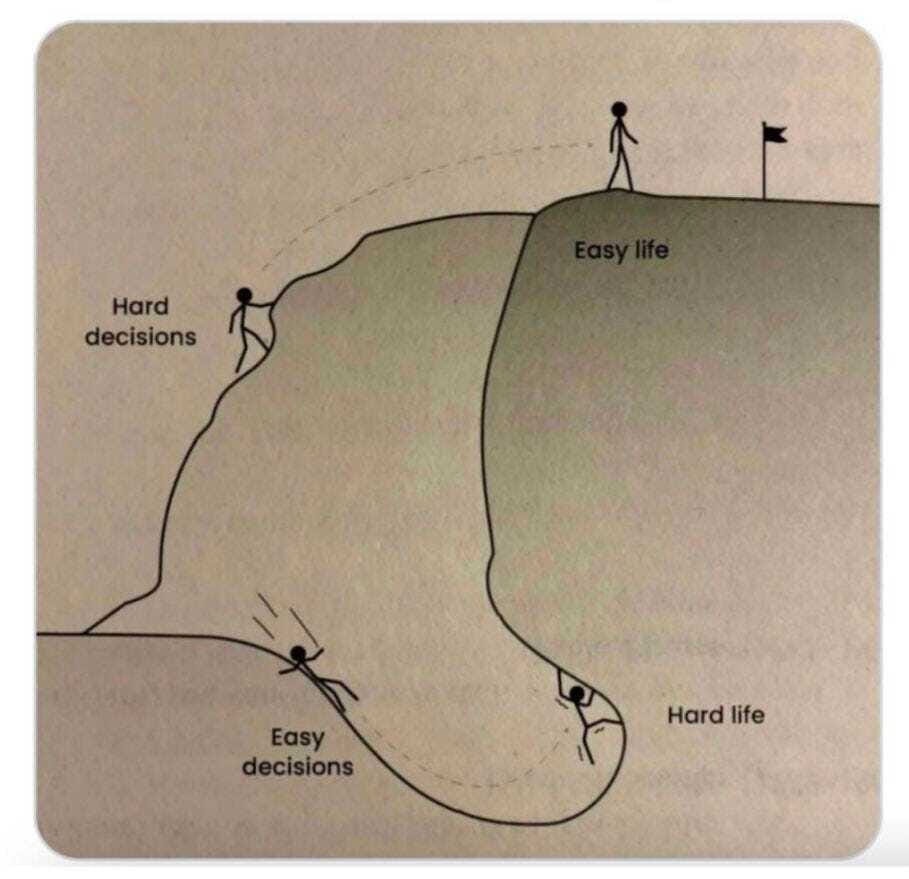Get Someone Else To Do It
The foundations of successful delegation.
Navigating Delegation…
Say what you will about Rummy, but our guy had some humdingers of quotes in his time. You don’t have to agree with his politics to appreciate what he is saying here. We all get so conditioned to take on all the things, prove our worth through excellence, and then take on more. Who of us gets trained in handing things off? Where is the trophy for all the things you did not do today?
Which brings me to the “only you” principle. This approach basically states that you should do only what only you can do. It’s an addition by subtraction notion that means you can do more when you stop trying to do it all.
It works because it forces you to analyze what you are really good at. You have to nail down what are the things that really only you can do. But then it also opens up your mind to recognizing that the list of things that only you can do is likely not as long as you think. And this, my friends, creates opportunity.
It clears the way for you to get things off your plate and it also clears the way for other people to shine, or take on more, or just plain old have a job. Through this lens, you get a perspective on what you can hand off.
Which brings me back to our boy Donny. Force responsibility down. Add structure. Resist the urge to take on the things that other people can do.
Alright, this all sounds great, but I can guess what you are thinking. I can’t possibly hand things off. Who will do them? It is more work to delegate than just to do things myself!
These are natural inclinations and they end up stopping a lot of us from ever delegating. So let’s unpack these and then get into the how of it all.
I can’t possibly hand things off. Lies! You hand things off all the time. Do you ever have someone bag your groceries? Have you had someone else teach your kid math? Did you replace your own alternator? Yeah, I know these are service-type jobs, but you are already comfortable with the idea of delegating. You’ve acknowledged somewhere along the line that there are things you can’t or don’t have time to do. So embrace this precedent and start thinking about what else in your life you can hand off.
Who will do them? This can be admittedly tricky. You may not have a budget to hire. Even if you do, you need to find the right people. This is chunky enough that I plan to write multiple posts on it. But for now, let me ask you this: How much do you make an hour? How much do you want to make an hour? Now calculate how much time you spent on tasks that you could have delegated. You could put a dollar amount on how much time you spent on these tasks. Through that lens, it is actually fairly costly to do these things yourself. There is an opportunity cost at play here.
It is more work to delegate than just to do things myself! Yes. Yes, it is. Anything you want to delegate is going to be more work when someone else does it. But, it is an investment and like all investments when they pay off, you are better off. The biggest mistake people make when it comes to delegating is thinking they can hand off 100% of their work on day one and call it good. You have to make the investment first and then acknowledge that you are most likely handing off around 80% of the work but you still have a part to play here. But this is still very net positive.
Okay, let’s jump into some of the nitty-gritty. For our purposes, let’s assume you have someone (or some group) to delegate tasks to. There is a process you need to implement to hand things off. It goes like this:
Identify your tasks - Start by listing all your current responsibilities—just let your thoughts flow and jot down everything you do in a week. Evaluate which tasks need your unique skills and which could be handled by someone else. While there are tasks that cannot be delegated, focus initially on those that are routine or repetitive. Identify tasks that are teachable; for example, at work, we post facts and questions to Instagram every day. It isn’t hard, but it has to be done. This is a perfect task to hand off. This is also a good time to review any things you can just stop doing or say no to.
Set clear goals - Clearly define the desired outcomes. Start with the end goal in mind and detail the results you expect. Establish timelines and ensure communication channels are open and defined. This is also a good place to give context. Explain why the task is important and needs to be done. Also, empower your employee to come to you with suggestions or pain points.
Create a system - Document every step required to complete the task. Identify what can be simplified or tightened up. For example, in the Instagram example, I created templates in Canva and documented all the login information for Canva and other tools we use. I wrote detailed, step-by-step instructions that covered everything from logging in, finding content, creating the posts, to scheduling them on Instagram. Utilizing checklists streamlines the process and makes the expectations clear.
Start training - With your system or process in place, train the designated person. Let them practice in a controlled environment where mistakes are inconsequential. Be present to guide them; either work alongside them or observe their progress, ready to refine the process if they encounter obstacles.
Coach - Transition from training to coaching as the person becomes proficient with the system. Maintain oversight early on to check their work. If errors occur, ensure they correct them, as experiencing the consequences of their actions enhances learning. Regularly discuss what is working and what needs improvement. Provide feedback, acknowledge their successes, and continue to empower them to make decisions and suggest improvements to the system.
Review - Even after the system is running smoothly, it's crucial to keep the lines of communication open for regular check-ins and revisions. Encourage the person handling the delegated tasks to propose ideas that could refine or expand the processes you've developed together. Ideally, they take ownership and improve beyond the initial set of steps you gave them.
I admit, I might be bending the rules a bit here. Finding the right person to delegate tasks to is undoubtedly the toughest part of the process. I’ll do a deep dive into this in future posts. However, once you've identified the right individual, having a robust process in place is crucial for successful delegation.
And it is so valuable. It frees you up but also creates opportunities for other people. Delegating isn’t easy; it’s a skill that must be practiced and honed over time. Recognize that the process will never be flawless, but use your experiences to improve it. Don’t be frightened to hand the torch to someone else. To become a great delegator, you will need some practice, but if you put in the effort, you and your team will be able to effectively collaborate and move forward.
Delegation is incredibly valuable. It not only frees up your time but also opens up opportunities for others. And I know delegation isn’t easy—it's a skill that requires continual practice and refinement. Understand that the process won’t be perfect initially, but keep going and keep improving. It takes practice and patience.
Oh, and of course, my favorite Rumsfeld quote is:
“As we know, there are known knowns; there are things we know we know. We also know there are known unknowns; that is to say we know there are some things we do not know. But there are also unknown unknowns—the ones we don’t know we don’t know.”
That has nothing to do with this post, it just makes me laugh that a Secretary of Defense said this with a straight face.
On Gratitude…
Today I am grateful for hard choices. Making a big change, taking a risk, sometimes just taking care of yourself can be so damn difficult. Invariably, hard choices come with pain. And you look around and think - how did this all get so messy?
But that mess, that pain is actually a good sign. It means that you have shifted. You are on the path to better days.
It’s the hard choices that mold us and shape us into who we are meant to be. So today I am grateful for the difficult decisions. Go out today and do hard things.
As always, thanks for reading.





Great post!! And you hit the nail on the head when you said you can’t give someone 100% on day 1. It takes time.
I’ve always said delegating is about self-preservation. It’s impossible to do it all no matter what some think. We save ourselves by finding a way to delegate things we don’t want to do, are not good or efficient at and are below our pay grade.
Thanks for the concrete plan.
Great post, Derek. Delegation is a key leadership and management skill that people learn over time. The problem is many people are too afraid to ask others to take something on, especially when they are new to a leadership position.
You cannot succeed as a manager and a leader without this skill.
The flipside? I used to work with someone who dubbed themselves the “delegation king” - he basically tried to offload his entire workload to others, many of whom were peers. As you can imagine, this didn’t end well…for him. 🙂